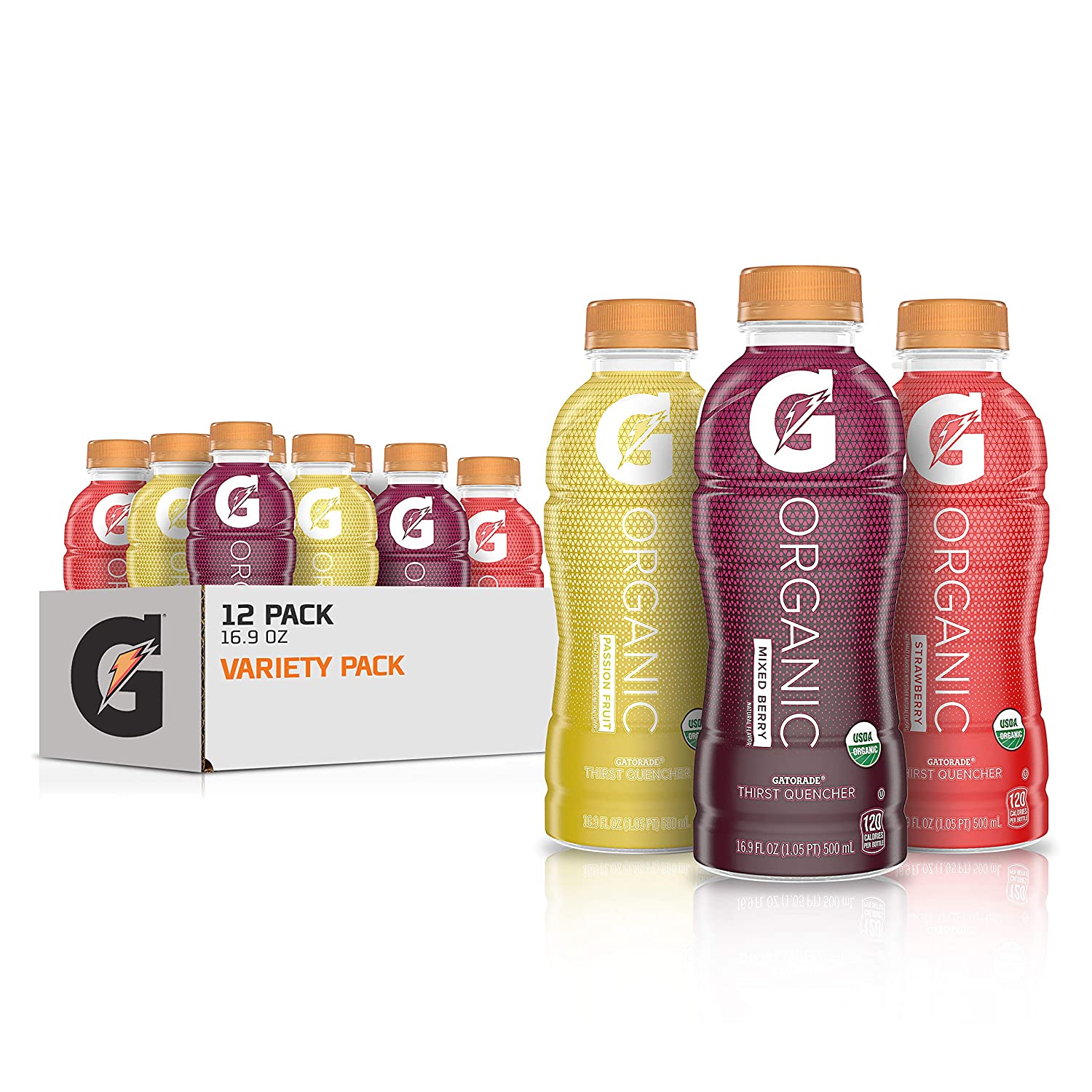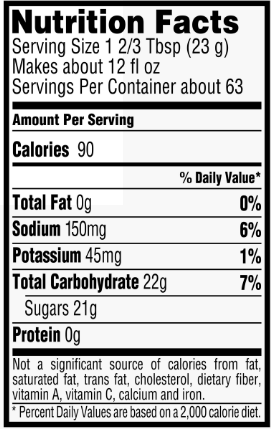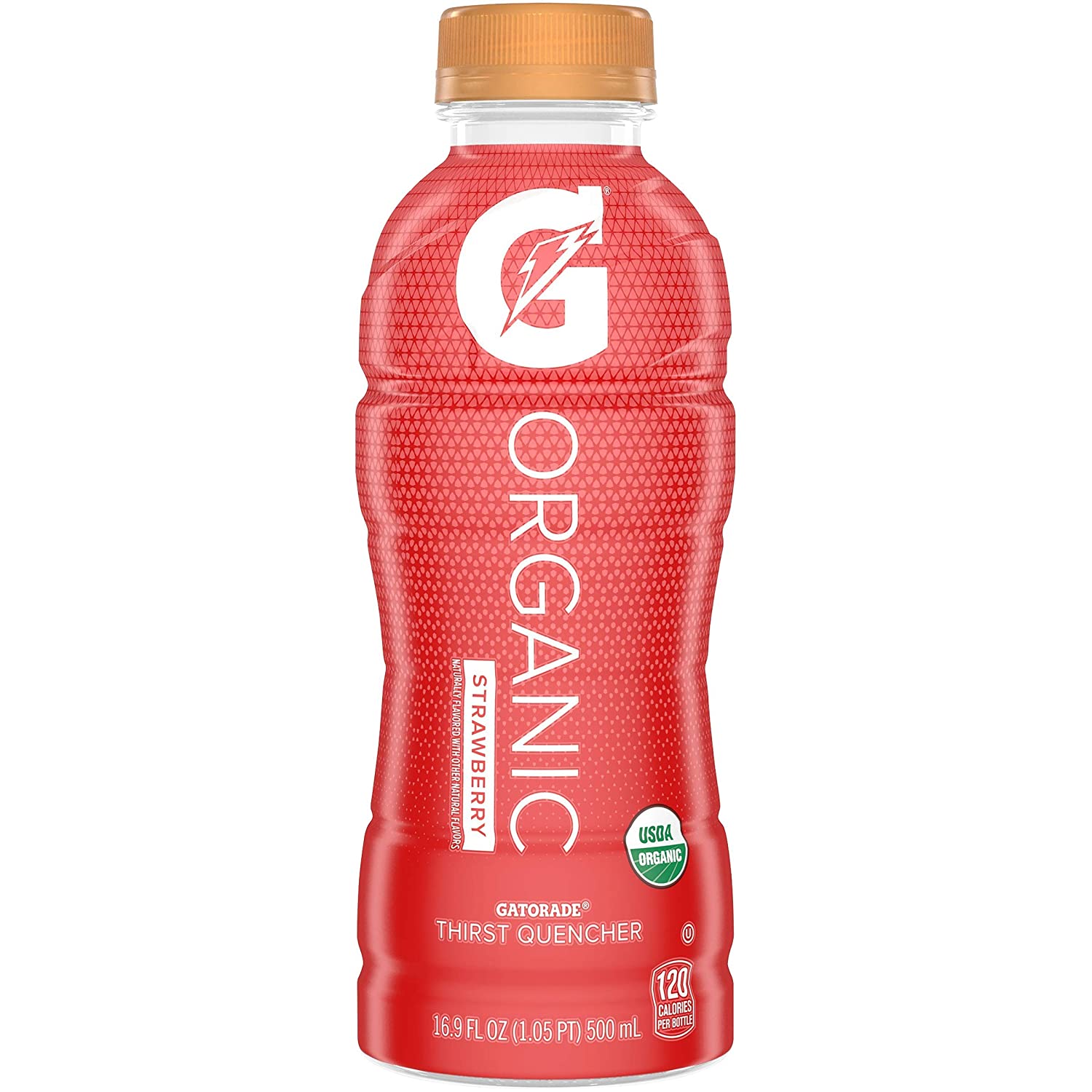Original Gatorade contains 90 calories and 21 grams of sugar, representing six percent of the Daily Value. Gatorade Original contains 150 milligrams of sodium and 45 mg of potassium, and Gatorade Prime contains 21grams of sugar in each 118-mL pouch. So it’s essential to understand what Gatorade nutrition facts mean for you. The sugar content of these drinks is higher than the sugar content in other sports beverages. Sugar The USDA recommends that adult men consume no more than 36 grams of sugar per day and adult women consume no more than 25 grams.

Gatorade Drink Nutrition Facts
The Red Gatorade nutrition facts include sugar. Twenty-ounce bottles of the Thirst Quencher contain thirty-six grams of sugar, which is not healthy. The rest of the ingredients are water, malt dextrin, and citric acid. As a result, it’s better to hydrate yourself with an alternative drink like Gatorade Zero or PowerAde Zero. You can still enjoy the tasty taste of Gatorade if you’re on a ketogenic diet.
Red Gatorade is a popular sports drink with an impressive 50-year legacy. It contains electrolytes, which are essential to the body’s fluid balance. Regardless of its sugar content, however, Gatorade is one of the few sports drinks containing sodium and potassium, which are necessary for the human body. As a result, these beverages can be highly beneficial during prolonged workouts. These drinks are recommended for serious athletes who need energy for long periods.
What is Gatorade?
Gatorade is regarded as the first sports drink. It was created in 1965 by University of Florida researchers as a way for athletes to replenish and rehydrate after physical activity for the “Gators” football team. Gatorade is primarily made up of water. Hydration is vital for our overall health, especially after physical effort, and thus this is an essential component. Carbohydrates (carbs) in the form of sugar are also present in Gatorade.
This aids in the replenishment of glycogen, which is used to store glucose (sugar) in your muscles for energy. Sodium and potassium are the most common electrolytes (minerals) in Gatorade. Electrolytes regulate muscular contractions, keep you hydrated, and keep your pH level balanced, among other things (the balance of acidity and alkalinity in your body).
What are the Health Benefits Of Gatorade?
Gatorade replaces electrolytes and energy lost during strenuous exercise and sports. Gatorade was proven to be an effective treatment for dehydration in a study done by the University of Iowa in the United States. It’s worth noting that this study focused on those who had viral gastroenteritis.
Remember that you should exercise for at least 60 to 90 minutes before drinking Gatorade. The drink replenishes the nutrients you’ve lost due to perspiration. It is primarily designed to aid athletes in maintaining their energy and alertness. According to studies, sports drinks may increase performance by supplying carbs, electrolytes, and other nutrients to the body.
When you lose more than 2% of your body weight (mostly from perspiration) during an exercise, your performance may suffer. As a result, staying hydrated is critical for peak athletic performance. Sports drinks can help you keep your blood glucose levels in check while increasing your exercise ability. The potassium (electrolyte) concentration in Gatorade, according to a study published in the Journal of Athletic Training, may assist avoid muscle cramping during exercise.
Gatorade Sports Drink
G Organic provides athletes with a USDA-certified organic fuelling solution that provides the same proven fueling benefits as Gatorade Thirst Quencher.
G Organic is a sports fuel created from organically cultivated sugar that provides scientifically balanced carbs, electrolytes, and hydration to assist athletes in attaining optimum performance throughout training and competition.
Water, organic cane sugar, citric acid, natural organic flavor, sea salt, sodium citrate, and potassium chloride are the only seven components in G Organic.
Gatorade Organic comes in three different flavors: strawberry, lemon, and mixed berry.
What are the Risks of Drinking Gatorade?
Bottles of Gatorade, which are heavy in sugar and salt, can quickly build up to more than a recommended amount of these nutrients, especially if you live an inactive lifestyle.
Gatorade can add unneeded calories to your diet that you don’t burn off if you have obesity or an inactive lifestyle (albeit it is fewer in calories than sugary sodas, which contain nearly double the calories of Gatorade).
Obesity puts you at higher risk for developing:
- High blood pressure
- Diabetes
- Kidney disease
- Cardiovascular issues
If you currently have one or more of these problems, drinking Gatorade daily can exacerbate them. Furthermore, too much salt can cause blood pressure to rise, which strains the cardiovascular system, perhaps resulting in a heart attack or stroke. As a result, drinking a lot of Gatorade while also eating salty foods does not help a healthy lifestyle.
Gatorade’s excessive sugar level is also harmful to one’s health. According to experts, sugar should make up no more than 10% of our daily diet, and approximately half of all Americans consume twice as much food daily. Sugar raises blood glucose levels and causes insulin resistance, a risk factor for type 2 diabetes. It’s also linked to heart disease and stroke. While Gatorade is not inherently harmful, excessive consumption combined with inactivity or obesity can lead to health problems.
Is Gatorade Healthy for Children?
Gatorade can give the same benefits for teens and older children who participate in many sports or stay physically active as it does for adults. However, because the sugar in sports drinks can contribute to weight gain and dental damage, the American Association of Pediatrics recommends that children drink them in moderation.
Most children do not require sports beverages such as Gatorade. Because of the artificial colors and high sugar content, experts advise parents to limit their children’s consumption of these drinks. If drunk in excess, sports drinks’ high quantities of sugar and sodium electrolytes can be detrimental to youngsters. Only active adults and some very active children should drink Gatorade.
Should you drink Gatorade or water after sports?
Gatorade and water will aid in replenishing fluids lost during exercise and other physical activities. Gatorade and other sports beverages differ in that they contain additional ingredients such as sugar and electrolytes. Electrolytes are minerals that affect a person’s muscles, brains, and nerves, such as potassium and sodium. Sweat contains not only water but also electrolytes, which are lost when a person exercises. Gatorade’s electrolyte content aids in the replenishment of lost electrolytes and the maintenance of hydration during strenuous exercise. During illness, such as stomach infections, it can also restore electrolytes.
Gatorade was created to aid serious athletes in improving their performance on the field. There is plenty of research to back up these claims, much of it funded by Gatorade and other sports beverages. There are more than 300 study articles about sports drinks available, according to sugar Science from the University of California, Berkeley. It’s uncommon to locate research that isn’t substantially supported by industry interests, such as Gatorade. When these organizations sponsor research on their products, reviewers often regard it as a conflict of interest.
An independent evaluation of research from 2007 found, for example, that trials with full corporate support were considerably more likely to provide favorable results than studies with no industry backing. According to a 2014 research evaluation from the University of California, Berkley, most researchers base their findings on the performance of competitive athletes. As a result, serious athletes who compete or exercise for more than an hour may find that Gatorade provides benefits that water does not. On the other hand, scientists do not advocate Gatorade or other sports beverages for the average person or child who exercises or competes for less than an hour.
Conclusion
If you are looking for information on the Gatorade nutrition facts, you have come to the right place. Here, you will learn how this sports drink has been produced. It is produced by PepsiCo and is distributed worldwide. The company initially developed Gatorade for the University of Florida Gators in 1965. The drink was developed to replace the carbohydrates student-athletes burned in extra-hot conditions and the water and electrolytes they lost through sweat. While occasional Gatorade consumption does not have adverse effects, a daily dose can add up to a significant amount of weight over a year. One Gatorade contains approximately 140 calories, which equals nearly fifty thousand extra calories over a year, or 14.6 pounds. This means that red Gatorade can easily replace water during exercise. So it is essential to understand the red Gatorade nutrition facts before drinking it regularly.
The average American consumes about 160 pounds of sugar a year, or about half a pound. Using drinks to consume sugar is one of the most common ways to consume it, and most people don’t realize that they are consuming sugar-laden beverages. In addition to containing sugar, Gatorade sports drinks contain artificial colors, which have been linked to behavioral problems in people with ADHD. But the FDA maintains that these colors are safe. It is also important to note that calorie and sugar content are not calculated based on the Body Mass Index, a flawed measurement. Moreover, it does not account for the actual composition of the person’s body.



